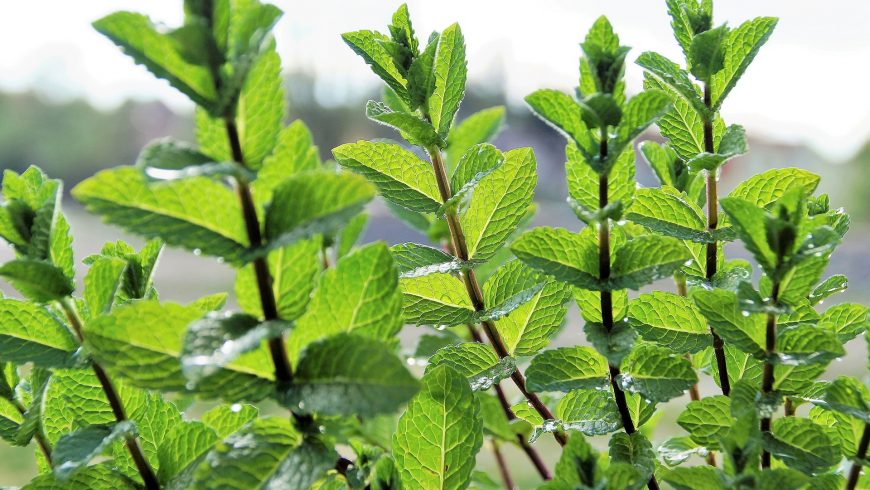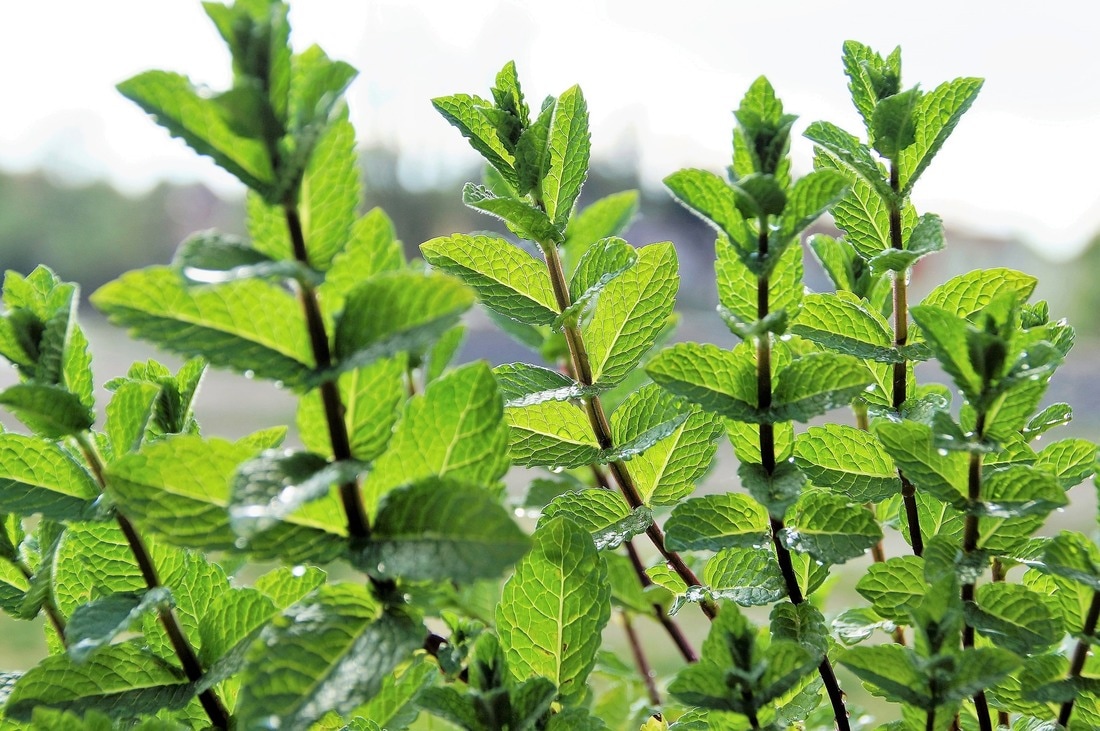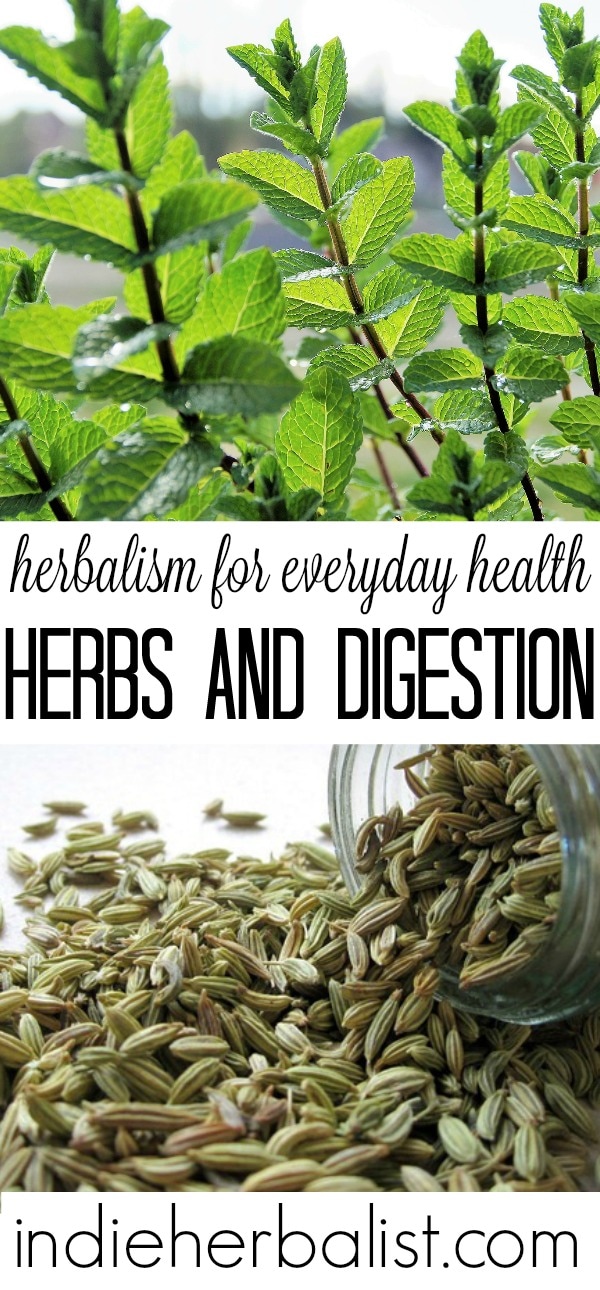Links contained in this post and elsewhere on my website may include affiliate links. When you make a purchase through these links, I earn a commission at no additional cost to you. I only link to products and services that I love - and that I think you will love, too!
Herbs + Digestion
Healthy digestion can be a broad topic, and there are several different categories of herbs that can be applicable. These include astringents, carminatives, bitters, and demulcents.
Astringents
Astringent herbs tighten and tone tissues. Astringents like blackberry root, white oak bark, and witch hazel were traditionally used as a home remedy for diarrhea, and modern herbalists also turn to them when there are imbalances in the digestive tract like leaky gut, diarrhea, and gastritis where the whole system can benefit from their tightening and toning action.
Carminatives
These are spicy or aromatic herbs that are traditionally used to soothe spasms and eliminate wind from the digestive tract. Peppermint is a well known carminative, and many culinary herbs and cooking spices have this quality. Carminatives were traditionally utilized either in food as spices or used after a meal as needed in the form of teas.
Bitters
We talked more about bitters earlier in the Challenge. Gentian, elecampane, dandelion, and burdock are all well known bitters. The bitter taste of these herbs helps jumpstart the digestive process and prime the body to receive, process, and assimilate food. Most bitters work, at least partly, by having an influence over the liver and gallbladder.
Demulcents
Herbs that have a moistening, gel like quality are known as demulcents. Slippery elm, licorice, violet leaf, and marshmallow are prime examples. Demulcents are soothing and cooling to inflamed tissues, and act as bulking agents for bowel movements.
Herbal Resources for Digestion
If you are interested in working with herbs to support your digestive system, it can be a good idea to either seek out an experienced herbalist or gather a wide variety of herbal resources that can help you tease out the finer points of the imbalances you are experiencing.
I don’t know of any online resources on herbal support for digestive health that go into enough depth to be really useful beyond suggesting a few common simples that may or may not be the right herb for you – again, you have to remember that there is no one herb that will be ideal for everyone and it’s important to take your personal imbalances into account rather than search for an herb to “treat” a disease or common problem.
Meadowsweet for Digestive Health
Meadowsweet is an important herb to know for digestive balance, so I’ve collected several articles and videos to help you become more acquainted! Meadowsweet has a reputation for being a normalizer of the stomach in many cases, and as an astringent it can be helpful for intestinal health. This versatility makes it a great place to start for learning about herbs that help support the digestive system.
The meadowsweet entry from A Modern Herbal.
How to make a meadowsweet elixir from Learning Herbs.
More about meadowsweet in an article for Mother Earth Living.
A video by Napier’s Herbals that discusses meadowsweet in depth.
All the best,
Agatha




